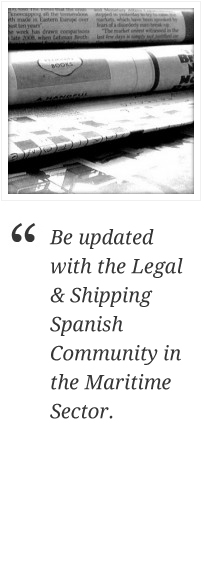November: CIRCULAR 15A/2001
THE DISEMBARKMENT OF 9 IRAKI STOWAWAYS IN THE PORT OF BARCELONA
The last month of June a vessel with 9 Iraqi stowaways on board arrived to the port of Barcelona. The vessel had previously tried to disembark the stowaways in the port of Itea (Greece) but without success as the Greek Authorities absolutely refused to intervene. The vessel was then forced to continue her trip to Barcelona.
The stowaways were discovered after the vessel sailed from the port of Limassol, where they boarded the vessel inside truck-trailers. They were hide inside the trucks where the ships’ crew could not have access.
Upon vessel’s arrival to Barcelona, and in order to ensure that the stowaways were given a fair hearing, the following steps were taken:
- We first got in touch with the Commission for Assistance to Refugees (CEAR) in Barcelona. It is our experience that co-ordination with CEAR is of much help in this sort of cases, since it is best if the stowaways are assisted by an NGO rather than by Owners’ lawyers. At his point the CEAR put on notice the United Nations Commission for the Refugees in Madrid, who in turn requested to the Office of Asylum and Refuge from the Ministry of Interior to give the police in Barcelona instructions to allow the stowaways receive the assistance from the CEAR from the very first instance. We also arranged the assistance of an Arab interpreter.
- We then contacted the shipagent in order to know vessel’s eta to Barcelona, who informed us that the vessel should remain a few hours on roads waiting for berth.
- Given this situation, and bearing in mind that the shipagent had already informed us that the police would not allow anyone to go on board the vessel, we decided to charter a boat to go on board the vessel while she was at anchor.
- When the vessel arrived to Barcelona roads, five people embarked: two lawyers acting on behalf the P&I Club, the Arab interpreter, the lawyer form the Catalonian Refugee Organisation and his assistant. At this point, and together with the Master and two of the four Greek Security Officers that were on board looking after the stowaways, proceeded with the interviews.
- During the interviews the stowaways confirmed the names and details that they had previously given to the Master during the Stowaway Questionnaire. They also explained how was their situation in Iraq, and why and how did scape from the country.
- Each of the 9 stowaways wrote and signed on board the request to apply for political asylum, which were also signed by the Master as witness.
- Before the vessel berthed, the five people attending on board were disembarked using the same chartered boat. Therefore avoiding troubles with the Port Police.
- When the vessel berthed at Barcelona the police boarded the vessel and proceeded with the disembark of the stowaways and took them to the Port Police offices in Barcelona to formalise their petitions of asylum.
- At the same time, the Catalonian Refugee organisation presented before the Subdelegation of the Government in Barcelona (who is the direct competent authority), the nine written petitions of asylum and requested that the nine stowaways should be landed and give them a fair hearing.
- In order to ensure that the stowaways were landed we were all the time in close contact with the experienced Basque Refugee Organisation, with the UN office in Madrid (who have all the necessary contacts within the Home Office), with the Catalonian Refugee Organisation (who have all the necessary contacts within the Subdelegation of the Government in Barcelona) and with the Master providing them all our support and back up.
- We followed the situation of the nine Iraqi stowaways disembarked in Barcelona regarding their request of asylum, and monitoring that the petitions of asylum would not be initially denied and that the stowaways would therefore be returned to the vessel.
- Should any of the nine petitions be denied before vessel’s departure, we had everything prepared so that the decision should be appealed by the designated lawyers handling the asylums’ requests.
- We monitored that the vessel could sail from Barcelona with none Iraqi stowaway on board.
The result was that the Spanish government “initially†denied (“Inadmisión inicial a trámiteâ€) the asylum petitions on the basis that the competent country to know of these petitions was Greece, according to the Convention of Dublin given that the vessel had previously called to Greece. Spain requested then to Greece to accept that they were the competent state to study the 9 petitions of asylum. According to the Convention of Dublin Greece has now three months to give an answer to Spain.
In the meantime the nine stowaways were retained in the border office of Barcelona. According to our domestic Asylum Law the Home Office can not retain more than 72 hours the petitioners of asylum. In front of the situation, and in order to best protect the nine stowaways, we contacted the Red Cross in order to see if they could provide the stowaways with accommodation after the 72 hours, who in return advised that they could not as they were always following the Home Office instructions.
Finally and while the petitions of asylum were taken in consideration, the Home Office decided to put the nine Iraqis to the “CENTRE D’INICIATIVES SOLIDARIESâ€, a place linked to the evangelical church belonging to a NGO. And requested them to present before the police in Barcelona every fifteen days whilst they were waiting for an answer from Greece.

